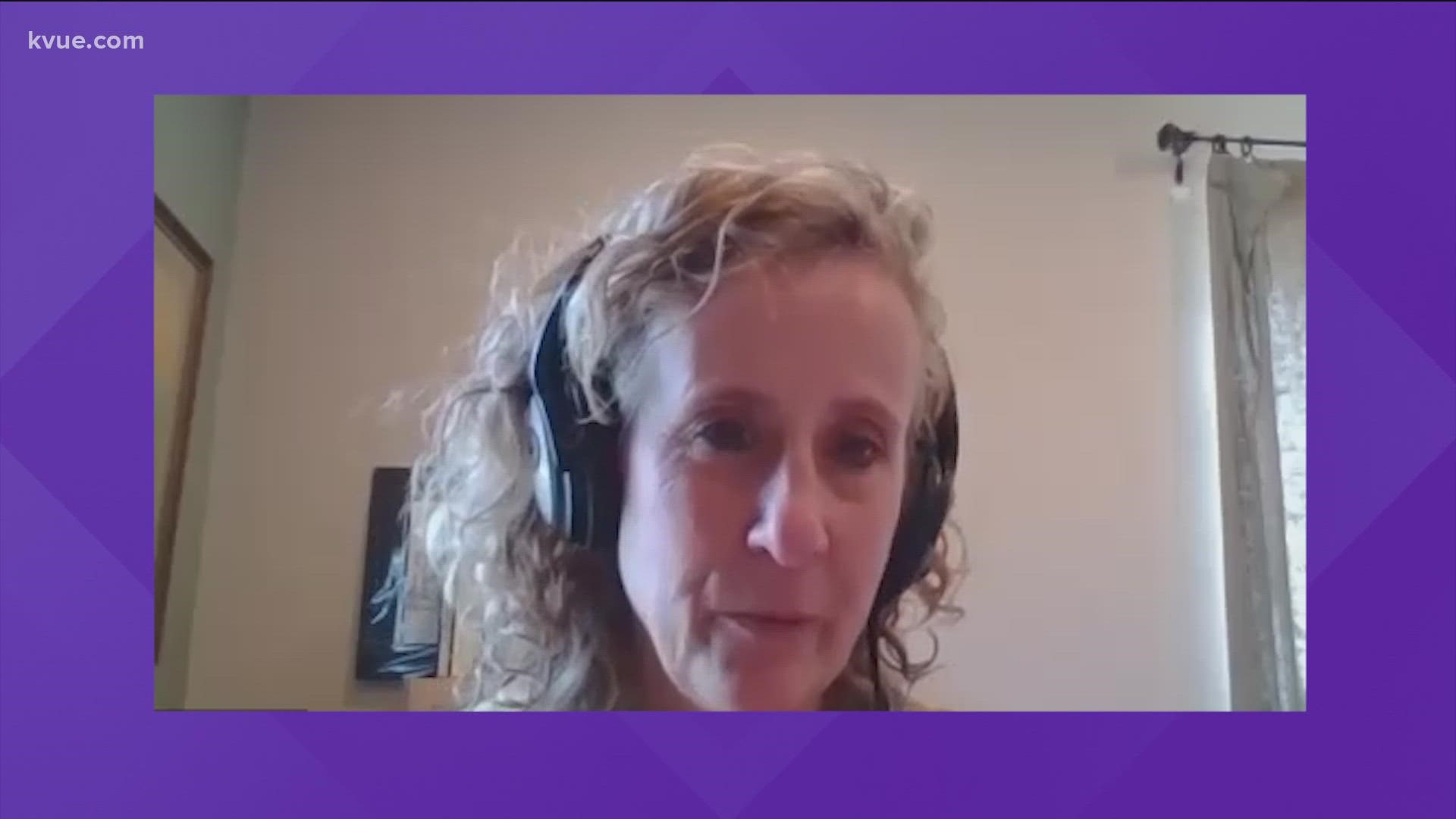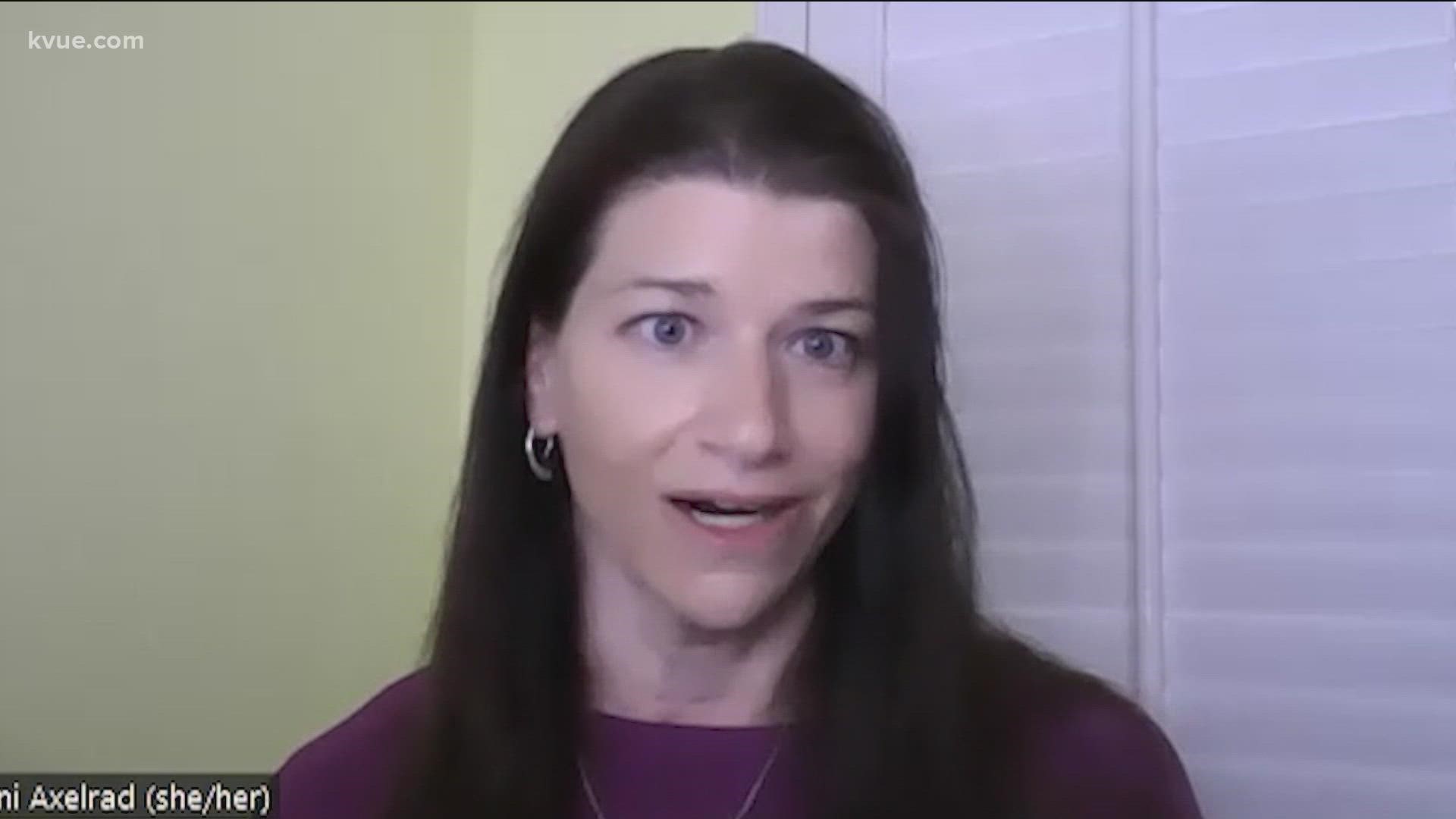UVALDE, Texas — On Tuesday, an 18-year-old in Uvalde opened fire inside Robb Elementary School, killing 19 children and 2 adults.
Many parents across Texas are struggling with their own emotions following the school shooting, and they are also trying to find the right ways to speak with their children.
We spoke with Dr. Pamela Malone, who is the clinical director at the Austin Center for Grief and Loss.
She said it is important to let a child share their worries, while also letting them know that there are adults working to keep them safe.
"Try to normalize that the feelings they have are real, they might be angry. They might feel confused," said Dr. Malone.
She said the conversation you have with your kids will depend on how old they are. With the younger ones, it is important to learn what they have heard and then talk about how they feel while keeping details minimal.
"Some children will ask more questions than others, and my suggestion is to keep the responses as simple as possible and really find out what the child needs to know," said Malone.
She said these are feelings that parents may have as well, and it is important for parents to process their own emotions too.
"If mom is crying or dad is kind of quiet, maybe explaining to children, 'Yes, I'm very sad about what happened and I have tears because of that,'" said Malone. "Turning to one another as parents is going to be very important, just to support one another."
Dr. Melissa Brymer, with the National Child Traumatic Stress Network, said different topics will be discussed with different age groups as well.
"With younger kids, it will be very, you know, a shorter conversation. It's reinforcing their own safety, helping them to know what are those things that help to bring comfort," said Brymer. "With older kids or teenagers, they may want to have a much more elaborate conversation about maybe their experiences of feeling unsafe at school."
She also said to make sure you are in a good emotional state when you speak with your kids, because you want them to feel like they have their own space to share their feeling and so that you can best support them.
"So giving ourselves some time and maybe reaching out to our own supports, whether it's our loved ones or our friends or our colleagues, to have that space. And then we need to have that with our kids," said Brymer.
She also said that many kids have sleeping problems following exposure to traumatic events and recommends letting them sleep with you or with a sibling. She also shared that before bed is not a good time to have these conversations and that before or after dinner is best.
You can find some resources on how to talk to kids after school shootings from the National Child Traumatic Stress Network here.
Dr. Dave Anderson, a clinical psychologist with the Child Mind Institute, said that it is good to talk about facts of what happened first, then answer questions and ask about their feelings.
He said to be honest with your kids about the situation and how you are feeling, and don't fake that you are OK. But, he said it is imperative that you give your kids their own space to share their feelings.
"Even if you're experiencing a really strong emotional reaction, pick a moment where perhaps your emotions might not be as strong, just so that you can maybe create space for either a young child or a teenager to give you their reactions and kind of expand into that space," said Anderson.
You can view the guidance from the Child Mind Institute on how to speak with your kids after school shootings here. The link goes to guidance in both English and Spanish.
Dr. Marni Axelrad, a pediatric psychologist with Texas Children's Hospital, also joined KVUE to discuss how parents can address this heartbreaking and challenging news with their children.
Things like this school shooting happen. It is hard. It's on the news, it's everywhere and parents are dealing with it. The kids also have questions, and they may see their parents sad or start asking questions about it. What type of advice do you have for parents?
It's a great question and, I think, really important actually to point out the parents are dealing with this and processing it as well, at the same time as their children are. So it's really important for parents to really take a moment for themselves, really think about the message they want to send to their child before embarking on that conversation.
And the conversation is really different depending on the child's developmental level, the child's age. So for young children, really limiting the information that you're giving is important.
And so, it is perfectly OK for young children to not say anything at all if they're not going to be faced with this information from someone else. So if the school says that they're going to be talking about it or your child comes home asking questions because peers have been talking about it, or they happen to see something pop up on your phone like a news ad that talks about it, then certainly talking to them is important. But it is perfectly OK if we can shield young children from this, to do so for young children.
And if we do talk about it, again, less information is good. So saying to them, "What do you know? What did you hear and how do you feel about that? And do you have any questions?" rather than saying, "This thing happened today and here's all of the facts surrounding it," because children, young children, really can't process all of that information in the same way as an older child or an adolescent does for older children and adolescents. Really having an open conversation with them about, you know, "This happened. Here's how I'm feeling. What do you know? How are you feeling?" And leaving a lot of open space there for children to talk about their feelings and then validating their feelings. So not saying, "That's really silly that you feel that way. You're safe at your school." Or if a child happens to say, "I don't know what I feel, I don't feel anything right now," to say, "That's totally normal. Feeling nothing is OK." Rather than correcting their feelings or it's telling them how they're feeling isn't right, validating feelings and keeping the conversation going. "Here's how I feel. Here's what your sibling was saying. They feel, I hear how you're feeling," and letting children ask questions.
I feel like a lot of these emotions, even for parents, like you said, it's complicated and it's hard. So for kids, I feel like since they have less of an understanding, it could be even more complicated what they're feeling. Correct?
Absolutely. And, again, for young children, it's very complicated because they can't possibly understand all of all of the information. And for older children and adults, it's complicated because there's so many feelings that surround it. So many people will say, "I just feel so sad for those families," or, "I just feel so angry that this happened," or even, "I'm really scared for myself." Those are all perfectly valid feelings, and you get to have all of them at the same time too.
And of course, this happened at an elementary school. And tomorrow, a lot of kids will be being sent off to school … From a mental health standpoint, what can parents do tomorrow morning?
It's important to reassure children you're safe at school. There are adults there whose job is to keep you safe. Just follow the directions of the adults and you will be safe at school. So really not scaring them or not saying, "I don't feel like you're safe, so I'm going to keep you home." So making sure that kids feel safe, particularly elementary-age children feel safe when they go to school is important.
But I think one thing we said in the beginning that I think is pretty important is the validating their feelings part. What are ways that parents can do that?
So really almost narrating what your child says to you. So if your child says, "I feel scared" – "I hear that this was a really scary event that happened and now you're feeling scared." And then, in the morning, as you're saying goodbye to your child in the morning when they're walking to school, if they say, "I'm really scared" – "I hear that you're really scared, you're going to be just fine. The adults are there to help keep you safe."
Is there any other advice you have for parents with this situation?
Yeah. So with young children, again, it's really important to limit the information. And with all children, but especially young children, it's also important to monitor your own response. So, tomorrow morning, when sending children to school, really trying your hardest not to have an emotional response that they can see. So even if that means that you say, "Have a great day, you're safe at school, you're super brave," and turning around and crying as you walk to your car, that would be much preferable to crying when you say goodbye to your child and say, "I'm just so scared to send you." So really monitoring emotional responses with your children. It's OK to say that you're having feelings too. It's less OK to be getting your own support from your children, and so making sure that you're doing the things that you need to do as an adult, as a parent, to support yourself. You're getting enough sleep, you're eating enough healthy food, you're talking to your friends or doing whatever it is that you do to cope.
I think the other thing that's really important to think about is that kids are really resilient, right? And particularly kids right now have had a really rough couple of years. And what we know is most kids do OK. So with the proper support, with parents listening and validating feelings, most kids are going to come through this just fine. It's the kids that a couple of months from now are still struggling, are saying that they can't stop thinking about it. They can't stop, they can't get the images out of their head. They're still feeling really scared. You notice your child isn't sleeping as much or is much more irritable than they were in the past, or has a whole lot of physical complaints that weren't there before. Those are times that you want to think about getting your child's professional help, but in the immediate aftermath. So in the days and weeks that follow, right now, it's important to be the support for your child and make sure that they're getting the support from their group from where they get support. So for most kids, that's friends, teachers and family. And that is what is important at this moment.
So let's say a child becomes really frightened, is really upset over the next week. That's normal. And just making sure that they have support and that you're there to help them cope is what's important. So running to get professional help right in the first few days or weeks isn't actually what children and adolescents need. What they need are their people.
PEOPLE ARE ALSO READING:


